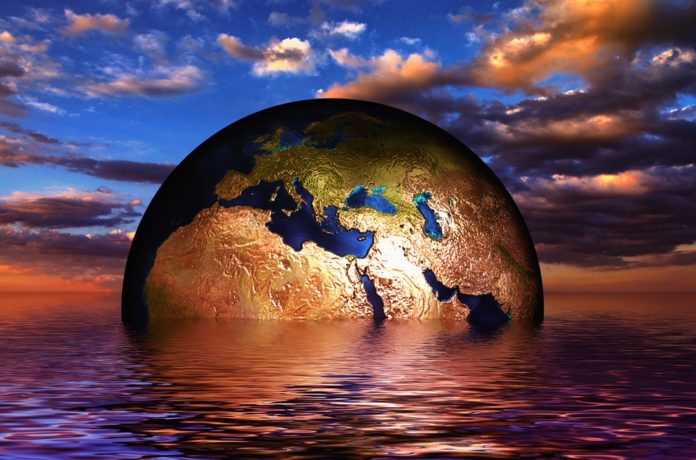Climate change is an age-old issue that has persisted for years prior to Al Gore’s 2006 documentary “ An inconvenient truth.” In it, the former Vice-President disclosed some very interesting facts about our changing atmosphere, and how the earth and everything in it is starting to suffer because of it. Little do most people know, our planet is changing faster than we can anticipate. Studies show that most of the Earth’s inhabitants are likely to experience the catastrophic effects of global warming in the next 50 years, meaning that most of us will be alive–and hopefully well–by the time sea levels rise to dangerous levels. Scared yet? Here are five facts about climate change that will have you recycling faster than you can say “where’s the eco-friendly trash bags?”
1. Sea levels are at their highest in over 2,000 years.
The earth’s tides are rising, with over 3.2 milliliters of water added to the ocean each year. This is primarily due to the melting of glaciers and huge beds of ice falling into the ocean at a faster and larger rate. Rising tides are also causing our beaches to recede, while decimating ecosystems of already endangered marine life and habitats.
2. Global flooding will triple by 2030
Global warming is responsible for flood waters destroying homes and even large fields of crops. In the next 12 years, the cost for repairing lost property, agriculture, and general infrastructure will cost well over 300 million dollars. This finical feat will likely take decades to complete, and even more time before livelihoods and communities can be fully restored. According to U.S News, as of last year, there are still active reconstruction projects to restore parts of New Orleans that were hit by Hurricane Katrina 13 years ago. If natural disasters continue to worsen–arguably caused by the warming of the atmosphere, which is also conducive to the formation of hurricanes– our nation’s economy, will likely plummet to cover the damage.
3. Cows produce more methane than the oil industry does
The industrializing of cattle and livestock farming is causing methane levels to increase so drastically, even oil companies can’t keep up. According to the Tech Times, 20 percent of U.S. methane gas emissions is produced by farmed cattle burps and farts. This means that cows–being one of the most farmed animals in the United States– are causing more damage to the Ozone layer than oil rigging all across the globe. Yikes.
4. Nature-based solutions are being overlooked
Of all the possible solutions to help mitigate carbon pollution, nature-related initiatives are not as heavily considered and are also poorly funded. Tropical forests are able to store large amounts of carbon exceedingly well – providing up to 30% of the solution towards climate change. The other 70% is largely comprised of commercial efforts to create greener alternatives to everyday products. Despite this, nature-based solutions only receive 2% of all funding devoted to climate solutions.
5. An overwhelming amount of people think global warming is a hoax
According to a recent study, 37 percent of Americans believe that global warming is not a real phenomenon, and another 64 percent do not believe that climate change will seriously affect their lives in any significant way. Although such doubt is alarming, it is somewhat understandable considering climate change has yet to rear its ugly head in most parts of the world. That is not to say that we have yet to document the earth’s changes, but that most metropolitan areas have yet to experience deadly wildfires, consistent floods, droughts, and large animal migrations. By the time such areas do experience these patterns, it may be too late.
If you are not one to stand around and wait for your own demise, here is what you can do to help.
- Take heed of ways to save energy. Turn off your appliances, and unplug them when they are not in use. Opt for portable chargers, and solar powered battery packs to reduce energy consumption.
- It also doesn’t hurt to recycle and to take extra care in properly disposing your waste. If recycling receptacles are not made available to you where you live, especially if you live in an apartment building or shared housing complex, take the initiative to purchase an inexpensive recycling bin to encourage your neighbors to recycle as well.
- Refrain from eating meat or reduce your intake. This will in turn slow down the demand for livestock farming, while simultaneously helping to reduce rising methane levels.
- Lastly, get involved with green initiatives, specifically organizations that plant trees and other greenery to help combat the effects of greenhouse gases.










